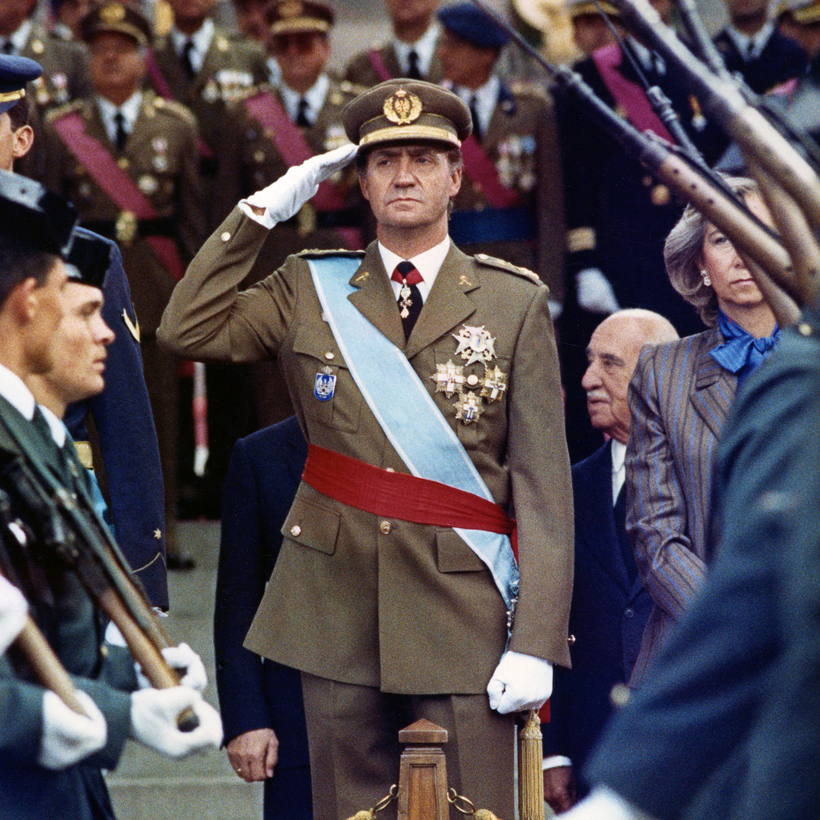Spain’s disgraced and exiled former monarch has praised Francisco Franco, saying he could be “tender and benevolent” and thanking the dictator for making him king, paving the way to democracy.
Juan Carlos, 87, speaking to Le Figaro before the publication earlier this week in France of his much-awaited memoir, timed to coincide with the 50th anniversary of Franco’s death, painted a positive picture of the dictator.

